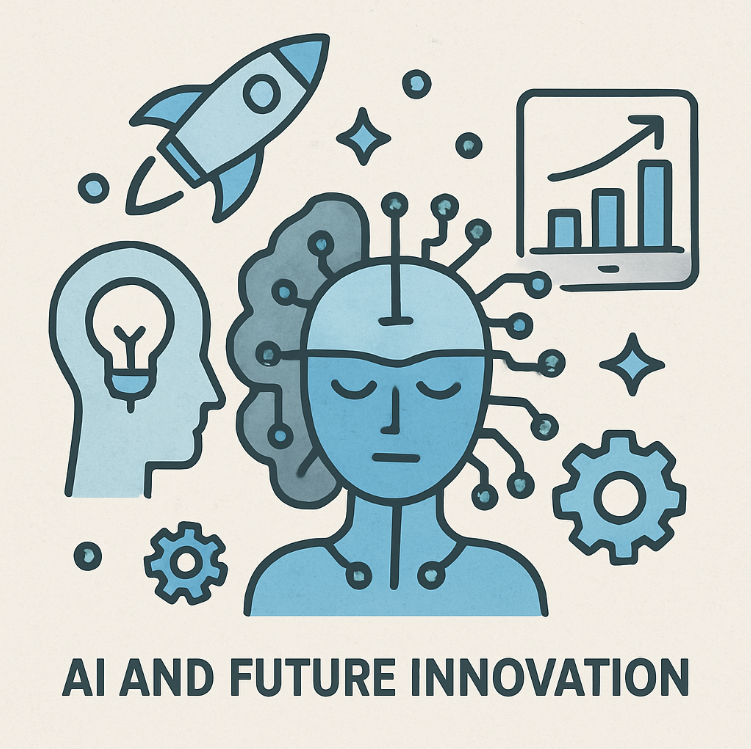Agentic AI refers to AI systems designed to operate with a degree of autonomy, enabling them to make decisions and take actions based on their programming and learning capabilities. Unlike traditional AI models that require explicit instructions for every task, agentic AI frameworks are designed to adapt and evolve, learning from their interactions with the environment.
Autonomous Decision-Making
Agentic AI systems are distinguished by their ability to perform autonomous decision-making. This capability allows them to interpret data, assess situations, and determine the best course of action without human intervention. This autonomy is powered by sophisticated algorithms that mimic cognitive processes, enabling AI to handle complex scenarios with precision.
Learning and Adaptability
A hallmark of agentic AI is its learning and adaptability. These systems are not static; they continuously learn from new data and experiences, refining their decision-making processes over time. This dynamic learning capability ensures that agentic AI remains effective even as environments and data inputs change, making them invaluable for long-term strategic applications.
Real-World Applications
These frameworks are capable of performing complex tasks, making them suitable for a wide range of applications, from automating repetitive tasks to driving strategic decision-making processes. For instance, in logistics, agentic AI can optimize supply chain operations by predicting demand and adjusting resource allocation in real-time, thereby improving efficiency and reducing costs.
The Rise of Agentic AI Frameworks
Technological Advancements
Recent advancements in machine learning, natural language processing, and neural networks have accelerated the development of agentic AI frameworks. These technologies enable AI systems to analyze vast amounts of data, identify patterns, and make informed decisions without human intervention.
Machine Learning and Data Analysis
Machine learning algorithms form the backbone of agentic AI, allowing systems to process and analyze large datasets. These algorithms can identify patterns and trends that are not immediately apparent to human analysts, providing deeper insights and enhancing decision-making capabilities.
Natural Language Processing (NLP)
Natural language processing (NLP) enables agentic AI to understand and respond to human language. This capability is crucial for applications such as customer service and support, where AI systems can interact with users in a natural and intuitive manner, providing assistance and resolving issues efficiently.
Enhanced Computational Power
In addition, improvements in computational power and data storage have made it feasible to deploy sophisticated AI models at scale. This has opened new avenues for businesses to leverage AI for enhanced efficiency, innovation, and competitive advantage.
Market Demand and Adoption
The demand for agentic AI frameworks is driven by the need for businesses to remain competitive in a rapidly changing market. Organizations are increasingly seeking AI solutions that can enhance operational efficiency, reduce costs, and improve customer experiences.
Cross-Industry Adoption
Agentic AI frameworks are being implemented across various sectors, transforming traditional business models and creating new opportunities. In the finance industry, for example, AI systems are used to automate trading, assess credit risk, and detect fraudulent activities.
Tailored Solutions
Moreover, in manufacturing, AI-driven robots and systems streamline production processes, reduce waste, and improve quality control. These applications underscore the transformative potential of agentic AI frameworks in driving operational excellence and strategic growth.
Challenges and Considerations
Ethical and Governance Concerns
As with any emerging technology, agentic AI frameworks present ethical and governance challenges. Questions surrounding data privacy, decision-making transparency, and accountability must be addressed to ensure responsible AI deployment.
Data Privacy and Security
Ensuring data privacy and security is paramount as AI systems process sensitive information. Organizations must implement robust data protection measures and comply with regulations to safeguard user information and maintain trust.
Transparency and Accountability
AI governance frameworks are essential to guide the ethical use of agentic AI, establishing standards for data management, model validation, and risk assessment. Organizations must prioritize developing robust governance structures to mitigate risks and foster trust in AI systems.
Bias and Fairness
Addressing bias and ensuring fairness in AI decision-making is critical. AI systems must be trained on diverse datasets to avoid perpetuating existing biases and to ensure equitable outcomes across different demographic groups.
Technical and Operational Hurdles
Implementing agentic AI frameworks is not without its technical and operational challenges. Integrating AI systems with existing infrastructure, ensuring data quality, and managing model complexity require significant resources and expertise.
Integration with Existing Systems
Organizations must invest in building the necessary infrastructure and talent to support AI initiatives. Additionally, fostering a culture of continuous learning and adaptation is crucial to navigating the rapidly evolving AI landscape.
Data Quality and Management
Ensuring high-quality data is vital for the effectiveness of AI systems. Organizations need to establish robust data management practices to clean, organize, and validate data, ensuring that AI models are trained on accurate and relevant information.
Talent and Expertise
The successful deployment of agentic AI frameworks requires skilled professionals with expertise in AI technologies. Investing in training and development programs is essential to build a capable workforce that can design, implement, and manage AI systems effectively.
The Future of Agentic AI Frameworks
Strategic Implications

The future of agentic AI frameworks holds immense promise for organizations seeking to enhance their strategic capabilities. By leveraging AI for data-driven decision-making, businesses can gain insights into market trends, customer preferences, and operational efficiencies.
Innovation and Product Development
Agentic AI also enables companies to innovate faster, creating new products and services that cater to evolving customer demands. AI-driven insights can inform product development processes, leading to the creation of innovative solutions that meet market needs.
Competitive Differentiation
As AI systems become more sophisticated, they will play a pivotal role in shaping business strategies and driving competitive differentiation. Organizations that effectively integrate AI into their operations will gain a significant advantage over competitors, positioning themselves as leaders in their respective industries.
Customer Experience Enhancement
AI frameworks can transform customer experiences by providing personalized interactions and solutions. By understanding customer preferences and behaviors, businesses can tailor their offerings to meet individual needs, enhancing satisfaction and loyalty.
Preparing for the Future
To capitalize on the potential of agentic AI frameworks, organizations must adopt a proactive approach. This includes investing in AI research and development, fostering cross-functional collaboration, and prioritizing ethical considerations.
Investment in Research and Development
Organizations should allocate resources to AI research and development to stay ahead of technological advancements. By investing in innovation, companies can explore new applications of agentic AI and develop cutting-edge solutions.
Cross-Functional Collaboration
Fostering collaboration across departments is crucial to maximize the benefits of AI. By integrating AI initiatives with business objectives, organizations can ensure alignment and drive holistic transformation across the enterprise.
Workforce Upskilling and Training
Training and upskilling employees to work alongside AI systems is also essential to maximize their benefits. By embracing a forward-thinking mindset, businesses can position themselves at the forefront of technological innovation and seize new opportunities for growth.
Conclusion
Agentic AI frameworks represent a significant advancement in the field of artificial intelligence, offering unprecedented opportunities for organizations to enhance their strategic capabilities. By understanding the potential and challenges associated with these frameworks, leaders can make informed decisions to integrate AI into their operations effectively.
As technology continues to evolve, the future of agentic AI frameworks will undoubtedly shape the way businesses operate, driving innovation and transforming industries. By staying ahead of the curve and embracing the possibilities of AI, organizations can unlock new levels of growth and success in the digital age. Through strategic planning, ethical governance, and continuous learning, businesses can navigate the complexities of agentic AI and harness its transformative power for sustained success.




